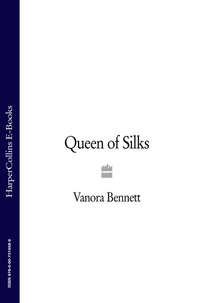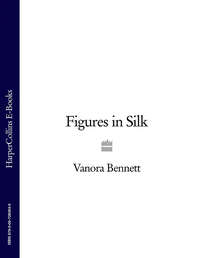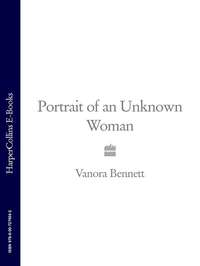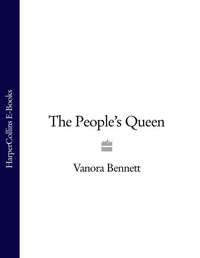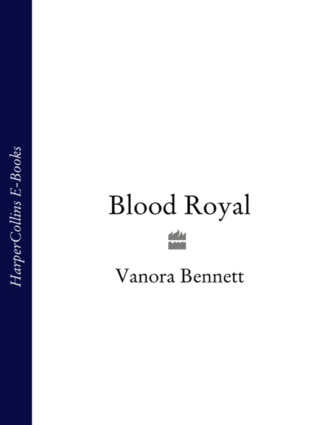
Полная версия
Blood Royal
Christine was telling him about coming to Paris for the first time herself. Her father had been a Venetian; he’d brought her to Paris when she was four and he had been appointed as the astrologer to the old French King’s court. She still remembered her first sight of Paris’s four bridges and the hundreds of princely hotels in the town along the Seine’s right bank; the glittering pinnacles of palace and cathedral in the city, on the Island in the middle of the river, and the sweeping vineyards, cornfields, churches and colleges of the university districts on the Left Bank. ‘And the King’s library …’ she reminisced, with a soft look in her eye, ‘… a thousand books, each more beautiful than the last … and the graciousness of the King himself … a true philosopher-king … So I understood your astonishment when you saw the city spread out before you this evening. I remember that moment myself. Paris is the most beautiful city in the world … and always will be.’
When Owain asked about the riots last year, and whether they hadn’t damaged the city – destroyed buildings, caused fires – she only waved a magnificent hand and made her ‘pshaw!’ noise, as if what Owain guessed must have been a terrifying couple of weeks had been an insignificant triviality. ‘Butchers!’ she said dismissively; ‘A hangman! What damage could people of that sort do?’
But, before she let Jean show him to the bed that Jehanette had made up for him in the scriptorium, Madame de Pizan drew him across to the window, and said, more sombrely, ‘Look here.’ She opened the shutters. They squeaked. She pointed down at the dark street outside. ‘Forget the butchers. If you want to know where our civil war really began, it was right there.’
Owain let his eyes get used to the dark, enjoying the air, fresh with early flowers. Up on the left, he could see the slender turrets of the Hotel Barbette; she’d shown him that earlier, on the way here. Opposite, he could just about make out a dark space, where a house should have stood. A froth of weeds; jutting timbers. ‘Yes,’ Christine said, ‘that burned-out space. That was where it all happened: the first death in the war. When France began to destroy itself.’
Christine fell silent for a moment, looking out, forgetting the boy, remembering that moment. She’d watched the aftermath from this window: the torches, the shouting, the panic. Out there, on a cold November night seven years ago, right outside that house, the Duke of Burgundy had sent men to waylay his cousin and rival, the Duke of Orleans, and murder him.
There’d been quarrels between the two men for years before that. Louis of Orleans had a light, teasing temperament; John of Burgundy was quiet and thorough and ruthless. They could never have been close. Louis of Orleans, charming and intelligent and musical though he was – Christine’s most glittering patron, back then – had been provoking too: so many mistresses, so many orgies in bathhouses, helping the Queen steal money from the royal coffers for her entertainments.
Burgundy’s men had come to this street for vengeance only after Orleans had hinted mischievously to Burgundy that he’d had an affair with Burgundy’s own Duchess. But they’d chosen precisely this spot to do their murder because they knew how often Orleans came here. The Queen, the wife of Orleans’ royal brother, had a private house on the corner of Old Temple Street – the Hotel Barbette, with its white turrets, fifty yards away. Queen Isabeau moved there whenever her husband was mad. For years before he was killed, Orleans had spent too many of his days and nights there too, whenever she was in residence. People whispered that he must be Isabeau’s lover.
There was no end to the mischief Louis of Orleans had done, it was true. But Burgundy’s response – murdering him – was a crime so horrifying it blotted out all the pranks and tricks Louis had so enjoyed.
Shedding the blood royal was sacrilege.
God anointed a king to be the head of the body politic. A country’s fighting noblemen might be the body politic’s arms and hands; the priests its conscience; the peasantry its legs and feet. But the King was the head, to be obeyed in all things, since everything and everyone depended utterly on him to convey the will of God from Heaven to Earth. And the blood that ran in his royal veins was as sacred as the sacrament and so were the persons of his closest relatives, the other princes of the blood, whom God might choose to take the throne tomorrow if He called today’s King to Heaven. It was the blood royal that brought life to the body politic – the will of God made manifest on Earth – and anyone who shed the blood royal was going against the will of God.
Once Burgundy, a prince of the blood royal, had ignored that divine imperative, and destroyed another royal prince, like a dog, the whole contract between God and man was destroyed too. The darkness had got in.
That was why, ever since the night of that murder, the hand of every prince in France had been turned against the Duke of Burgundy – even if Burgundy’s personal magnetism was such that he’d bullied the poor, sickly King into pardoning him; even if he’d bullied Louis of Orlean’s young son, Charles, into saying publicly, through gritted teeth, in front of the King, that he forgave him too, and would not seek revenge for the death.
That was why France was cursed.
Even now that Burgundy had slunk away from Paris, it wasn’t the end. That there would be more bloodshed Christine had no doubt. Every prince who would have followed Orleans’ son Charles, if he had raised his hand against Burgundy, was taking a lead instead from his fiercer father-in-law, Count Bernard of Armagnac, who was bound by no peace promises. But, whatever the princes thought, the people of Paris still loved Burgundy. He paid his bills, unlike the more spendthrift Armagnac princes; as Christine and her son had both found, Burgundy was a better employer. Sooner or later he’d be back, with an army behind him, to trade the love that Parisians bore him for power. And then …
She leaned against the window frame.
‘Are you all right?’ A timid boy’s voice came from her side, making her jump. It was Owain Tudor; still there, staring at her with big gentle eyes. She’d forgotten all about him. She sighed. ‘Just regrets,’ she said wistfully, ‘for so many past mistakes.’
He murmured; something optimistic, she guessed. He was too young to know there were some wrongs that couldn’t be righted; some sins that would follow you to the grave. She shook herself. Smiled a brittle, social, off-to-bed-now-it’s-late smile at him, and began locking up. But perhaps his naive young man’s hope was catching. As she heard his footsteps, and Jean’s, creak on the stairs, she found herself imagining a conversation she might have, one day soon, with someone still full of hope – someone like this young Owain.
‘What are you writing now?’ he would ask.
She’d answer: ‘The Book of Peace.’ And she’d smile, because it would be true.
THREE
Owain meant to lie awake in the room where they’d made up a bed for him, and imagine himself walking through the city streets tomorrow. The room was warm, but furnished only with a huge table scattered with parchments and pens and with two long benches. There was a shelf of books on the wall. He’d imagined himself taking a book off the wall and, very carefully, putting it on the table and beginning to read it by candlelight. But sleep overcame him as soon as he threw himself down on the quilt. Instead of reading, he dreamed: fretful, regretful dreams, of woodsmoke, and stinging eyes, and the blurred outlines of rafters high up, and a woman’s arms cradling him, and a lullaby in a language he hardly remembered.
A few streets away, in the Hotel Saint-Paul, Catherine crept to her bed, shedding her sister-in-law Marguerite’s borrowed houppelande, which had made her sweat so much, leaving it on the floor with all the other neglected garments no one picked up any more. Marguerite wouldn’t notice, she thought, with childish unconcern; Marguerite spent so much time lying round crying in the Queen’s chambers at the mean way Louis treated her that she didn’t have time to worry about where her clothes were. Marguerite was always weeping; always running to the Queen for sympathy, and getting it, too. Catherine couldn’t understand why her mother was so much sweeter with Marguerite than she was with her own children. They all hated Marguerite’s father, the Duke of Burgundy; they all knew that was why Louis was so cruel to his wife. And the Queen hated the Duke of Burgundy at least as much as anyone else. But it didn’t seem to make her hate Marguerite. Struggling with the jealousy that thoughts of her mother’s public affection for Marguerite always aroused in her, Catherine thought, without really questioning why: perhaps Maman just hates Louis more than she does Marguerite’s father.
All Catherine had on below the houppelande was the dirty shift she’d worn for two days. She’d been tucking up its greying sleeves for hours under the green velvet, to keep them out of sight.
She stopped. There was someone already snuffling under the bedclothes. She held the candle close. Charles, damp and muttering, with his thin boy’s arms and legs rumpling the sheets into a linen whirlpool. She stood at the side of the bed and, with one hand, reached down to straighten the covers and stroke his hair. Then she saw there was a trace of meat grease still on his face. She raised the candle to look round the room. Sure enough, there was a hunk of bread and a slice of beef waiting on a platter under the window. ‘Thank you, Christine,’ she muttered, as she tiptoed towards it.
She put the candle on the table and ate, remembering the anxiety on Charles’ pale little face when he’d slipped out of the audience hall. There was no need for him to worry, she thought, rather sadly. Everyone else knew nothing would come of this marriage offer.
Still … it would be nice to be a queen … to know you’d always be fed and clothed and happy … and safe. She sighed, snuffed out the candle, and got into bed beside Charles.
In pitch darkness, Catherine sat bolt upright in her bed, with her hair wild and her eyes wide in terror. That woke little Charles up too. He sat up; started to shake. He clutched her hand.
She pulled open a corner of her curtains, so they could see out. They waited. They listened. But all either of them could hear, through the thump of their heartbeats, was the doubtful creaking of floorboards, and draughts flapping distant cloth. There was no one there.
‘Nothing,’ Charles whispered stoutly. ‘You must have been dreaming. Go back to sleep.’
He snuggled back down into his quilt. He didn’t want to remember the butchers with thick bare arms and leather jackets smelling of death, with aprons streaked with blood, who’d broken into the Hotel Saint-Paul last summer. Screaming. Sweating and waving sticks and yelling and jeering. Smelling.
Catherine lay down again too, but she couldn’t stop listening or controlling her breathing to keep it quiet, in case someone else was listening. She could have sworn she’d heard the smash of glass again.
When they’d come last summer, they’d broken right into the ballroom. There was nothing to stop them. The Hotel Saint-Paul didn’t have proper battlements. It was just a collection of houses and gardens, bolted together by long galleries – a made-up palace of pleasure gardens, created inside the city wall by her grandfather in times when there were no rebellions. They stayed here still because her father liked it; it reminded him of his own happy childhood. But Catherine’s memories were different.
She’d watched three of the butchers chase one official down the corridor. The official had flung himself at Marguerite and clung to her skirts. She’d thrown her arms round him, but the butchers hardly noticed. They had yanked Marguerite’s arms away and torn her sleeve. They had pulled him off her, sobbing, the terror of a hunted animal on his face. The detail Catherine remembered most clearly was that Marguerite’s headdress had caught on one of the men’s belts. Marguerite had just gone on standing there, with her arms still outstretched and tears streaming down her cheeks and her blonde hair streaming behind her; not even trying to grab for the twin horns of the headdress as it bobbed absurdly on a butcher’s behind.
They all said it wouldn’t happen again. Everyone said the riots had been Marguerite’s father’s fault. They said the Duke of Burgundy had paid the butchers to attack. And he was gone now.
The memory of him still made Catherine shiver. So tall and lean and stooped; and when he looked at you with his cold, hooded eyes you went still, as if he were turning you to stone.
She wrapped her arms round herself. She didn’t believe he’d gone for good. She knew it wouldn’t take long before there was more fighting. They all hated each other too much for anything else.
If only there were stronger walls around the Hotel Saint-Paul.
The thought came unbidden to her mind as she lay down again. If she went to England, where there was peace, she’d never need to be afraid again.
She put her hand on Charles’ shoulder. He was so small, and so thin. She couldn’t leave him.
Trying to still her thoughts, Catherine closed her eyes. When Charles burrowed his small, hot hand trustingly into hers and whispered: ‘Catherine, are you awake? Don’t let them send you to England. Please,’ she squeezed his hand back, and felt guilty for having hoped, for a moment, for escape.
FOUR
Owain sat at the table in the thin morning light. Upstairs he could hear the excited voices of five-year-old Jacquot and three-year-old Perrette, about to burst down if only the serving girl could persuade them to put their clothes on. No one moved to touch the meal. Owain didn’t like to ask why, though he was hungry. He just drank them all in, all those thin, dark, clever faces, enjoying being with this family that had grown up together. He didn’t remember his own mother. He’d been brought up in packs of boys, being taught by gruff men to hold a sword and a bow. He was unsure how to act in this easy intimacy. He waited, shyly, for enlightenment.
A bang at the courtyard door shocked him, but everyone else relaxed. ‘Jean,’ said Jean, and Jehanette rushed out to open up. A tall blond man in his twenties was there, swinging off his mule; very good-looking, dressed more richly than anyone in the de Pizan or de Castel family, in confident blues and greens, with a sash of red and a touch of gold at neck and wrist; twinkling cheerfully down at Jehanette. He strode in, stopped at the sight of Owain; then bowed and clapped the boy on the back as the explanations about the guest flowed around him.
‘Delighted,’ the blond Jean said, with an easy warmth Owain didn’t know from his years in draughty castle corridors among Englishmen, but remembered from a time further back; a warmth that made Owain feel this man, too, might soon become a friend. Blond Jean raised an eyebrow at dark Jean de Castel; jerked a casual shoulder back outside. ‘Wouldn’t you like to eat before we go?’ said the dark Jean; though he was clearly ready to take his lead from his friend and miss breakfast if that was required.
But blond Jean shrugged and gave in with a laugh. ‘Hungry?’ he said; a man of few words. ‘Well, after all, why not? Let’s.’ He put down the big wooden-backed document case he was carrying and lounged back on a stool. Politely, he picked up a piece of meat with his knife and laid it on a chunk of bread, but he only ate a mouthful. Dark Jean didn’t eat much either; an atmosphere of strain and haste had come upon the family.
When the two young men had gone, a few minutes later, dark Jean taking the mule Christine had had from the palace last night, Christine said: ‘Jean’s working with the other Jean at the chancellery. It’s important for us all that it goes well. Luckily Jean’s friend’s father is Henri de Marle …’ She paused and looked at Owain, who only looked bewildered. ‘The Chancellor of France now,’ she explained, with none of last night’s softness, just haughty astonishment that anyone could fail to know something so vital, ‘since the Duke of Burgundy left Paris; he was president of the Parliament before. A good connection …’
She bustled around, picking things up; preparing for the day; not looking at him. She was putting things in a basket. When Owain plucked up courage to speak again, she took a moment to turn round in the direction of his voice, as if she didn’t really want him there. ‘My Duke is busy with your Queen today,’ he ventured; ‘a hunting expedition. I’m not needed.’ He sensed, from the hard line of her back, that she didn’t want to be reminded that he was the servant of an English duke. ‘So perhaps … I could … go with you, if you’re going into Paris?’ he finished, in a breathless hurry. He was longing to see the city; but he was a little scared of venturing out alone.
She said briskly, ‘I’ll be busy here for a while.’ She didn’t meet his eye. Perhaps she was regretting the warmth of their conversation last night, he thought. She didn’t like the English, and even if he wasn’t really an Englishman, and knew he’d never be considered as one back home, he could see that, in her mind, he might still count as one. For a moment, he felt disconsolate.
But only for a moment.
Then the memory of the books came back to him. Brightly, Owain asked her if he could spend his free day reading one of her books, if she would choose him one; and then she did turn and reward him with a smile of surprising depth and intimacy. ‘You really want to learn something, then,’ she murmured, in her magnificent throaty rumble; nodding as if she were surprised and impressed. He glowed. He wanted to impress her; he could sense she knew many things he’d be interested to find out.
She didn’t say any more. She just led him back to the scriptorium where he’d slept, looking approvingly at the way he’d tidied his things into a corner so as not to be in the way. She hesitated over the books on the bookshelf for a few moments, picking at first one, then another. Finally her hand pulled one out. She set it up on a lectern and left in silence.
Owain read.
He’d expected it to be hard. He’d expected to be out of his depth. But the story she’d chosen was a very simple one. It was the story of her life. It was like nothing he’d ever read or heard before. Even the poems and stories he remembered from long ago, before England, back there – the legends, the tales of ancient kings, the songs of praise – weren’t so shockingly personal. Before he knew what had happened, he’d been swept off into another time and place, lost, for the first time, between the covers of a book, experiencing the love that had once been in the newlywed Christine’s heart.
The first night of our marriage, I could already feel
His great goodness, for he never did to me
Any outrage which would have harmed me,
But, before it was time to get up,
He kissed me, I think, one hundred times,
Without asking for any other base reward:
Indeed the sweet heart loves me well.
Prince, he makes me mad for love,
When he says that he is all mine;
He will make me die of sweetness;
Indeed the sweet heart loves me well.
Owain turned the page, realising only now, with a sudden sickness in his heart, that he already knew that Christine had been widowed young. This story wouldn’t end well.
‘My husband was the head of the household then: he was a young, wise and sensible gentleman, well-liked by princes and all those who used to work with him as King’s Secretary, a profession that enabled him to sustain his family. But already Fortune had consigned me to its wheel, preparing to confront me with adversity and knock me down. It did not want me to enjoy the goodness of my husband and killed him in the prime of his life. It took him from me in his prime youth, when he was thirty-four and I twenty-five. I was left in charge of two small children and a big household. Of course, I was full of bitterness, missing his sweet company and my past happiness, which had lasted no more than ten years. Aware of the tribulations that would face me, wanting to die rather than to live, remembering also that I had promised him my faith and love, I decided I would not remarry. And so I fell into the valley of tribulation.’
Owain flicked forward.
‘I could not exactly know the situation regarding his income. For the usual conduct of husbands is not to communicate and explain their revenues to their wives, an attitude that often brings troubles, as my experience proves. Such behaviour does not make sense when the wives are not stupid but sensible and behaving wisely … I had been so used to enjoying an easy life, and now I had to steer the boat that had been left in the storm without a captain. Problems sprang at me from everywhere; lawsuits and trials surrounded me as if this were the natural fate of widows. Those who owed me money attacked me so that I would not dare ask anything about it. Soon I was prevented from receiving my husband’s inheritance, which was placed in the King’s hands … The leech of Fortune did not stop sucking my blood for fourteen years, so that if one misfortune ceased, another ordeal happened, in so many different ways that it would be too long and too tedious to tell even half of it. It did not stop sucking my blood until I had nothing left.’
Owain jumped. It took him a second to remember where he was. He was in the scriptorium. It must be midday. The sun was brilliant through the square of the window. And Christine was somewhere behind, moving very quietly so as not to disturb him.
He turned round to her; ducked his head in the beginnings of a polite bow. There was something strange now about looking at her; she was as fiercely self-possessed as ever, and three times his age, but he knew so many intimate things about her … He’d felt her love as if it were his own … and he was in pain for her past grief … and he thought he understood why, after all those troubles brought on by her widow’s weak helplessness, she’d be quick to attack now if she ever felt belittled. It explained even her sharpness, at moments, with him.
Perhaps she saw. She was nodding to herself; she looked warmer than she had in the morning. She didn’t acknowledge the traces of tears on his cheeks. But she did nod her head down at the basket on her arm.
‘I’m going to run my errands now,’ she said; and suddenly she smiled that brilliant smile. ‘Would you like to come into Paris with me?’
Christine hated the Butchery. There was no alternative but to pass Saint-Jacques of the Butchery Church on the Right Bank, on the way to the Island that was still the heart of Paris: they had to walk by that great show-off church building that the rich bully-boys had spared no expense on, making its stained-glass windows glow and its saints glitter with gold. But at least she needn’t tell Owain any more about the butchers, and what they’d done last year, she thought, averting her gaze. He knew enough. The streets of the Butchery were strangely quiet these days: the calves and cows, lowing uneasily, still came here to be slaughtered from Cow Island, their flat last pasture in mid-river, and the tanners still hung skins on ropes from side to side of their street to cure them, like great stinking brown sheets, but now that the butchers weren’t allowed to sell on their home territory any more, the district had lost its old swagger and bustle and arrogance. When Owain asked, ‘Why is that church chained up?’ she only pursed her lips and pretended not to hear. He asked again. With all the old rage coming back at the oafs she could suddenly remember, yelling their slogans and thrusting their torches priapically through the smoke and darkness, so her throat was so tight she thought she might choke, she said, shortly and incoherently, ‘What sense could there ever have been in men of the streets – monkeys like these; animals – trying to imitate things they don’t understand.’




